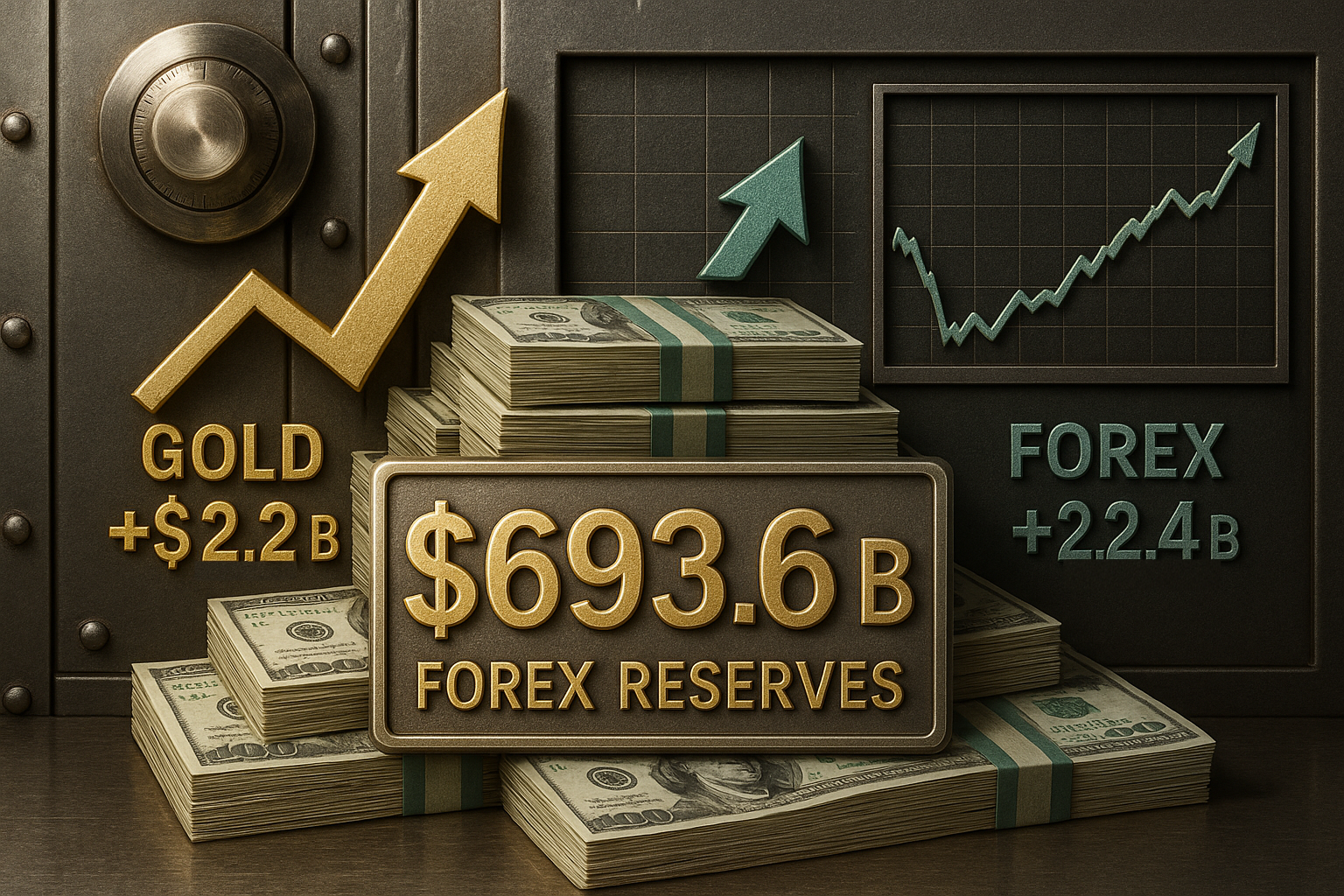India’s foreign exchange (forex) reserves increased by $4.74 billion, climbing to $693.62 billion for the week ending August 8, as reported by the Reserve Bank of India (RBI). This rebound comes shortly after the steepest weekly decline of the year, signaling renewed confidence in India’s external stability.
What’s Driving the Uptick?
Revaluation Gains
A substantial part of the surge stemmed from revaluation gains—primarily due to a weaker U.S. dollar and rising gold prices—which lifted reserves by approximately $9.8 billion, offsetting RBI interventions.Normalizing After a Sharp Drop
The recovery follows a significant drawdown of $9.32 billion the previous week, when the RBI intervened to stabilize the rupee.Balanced Reserve Components
The increase comprised mainly in:Foreign Currency Assets: Up by around $2.37 billion to $583.98 billion.
Gold Holdings: Rose by $2.16 billion to reach $86.16 billion.
Additional modest gains were seen in Special Drawing Rights (SDRs) and IMF reserve position.
Macro Implications
A Strong External Buffer
The updated reserves comfortably cover 11 months of merchandise imports and nearly 96% of India’s external debt, underscoring high macroeconomic resilience.Policy Flexibility
A fortified reserve position grants the RBI greater leeway to manage currency volatility, respond to global pressures strategically, and sustain market stability—especially during geopolitical or trade-induced turbulence.Investor and External Confidence
Higher forex reserves reinforce investor trust, signaling the government’s commitment to safeguarding balance of payments and cushioning economic shocks.
What Comes Next?
With reserves rebounds grounded in valuation effects, close monitoring remains essential. Market watchers will be watching for:
Whether RBI continues swaps and interventions into foreign exchange markets.
Trends in global gold prices and dollar value, which influence reserve valuations.
Long-term sustainability—assessing whether future surpluses stem from trade and capital flows or mainly accounting effects.












